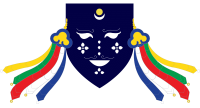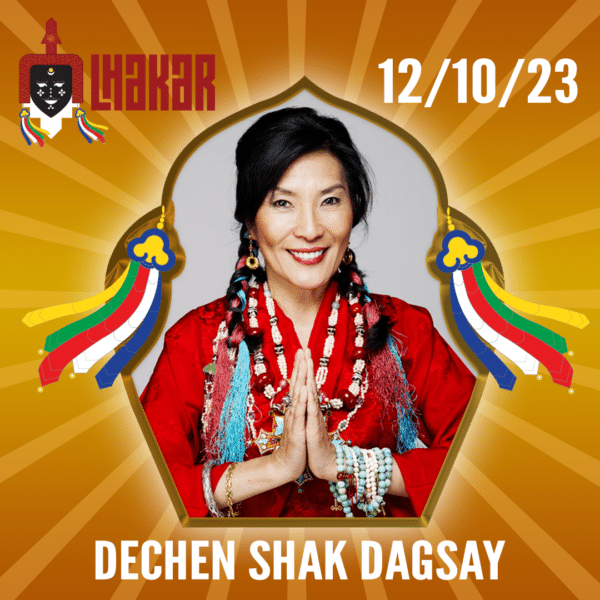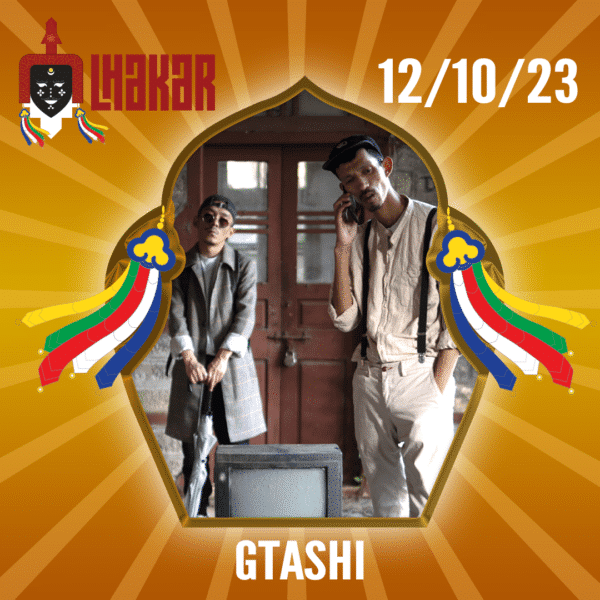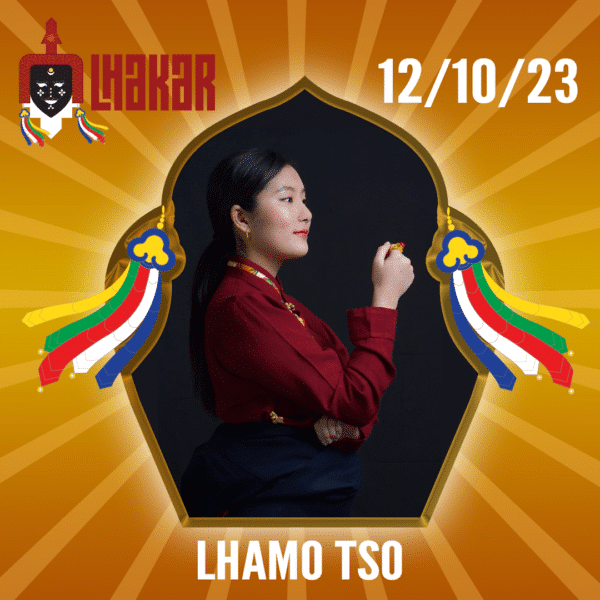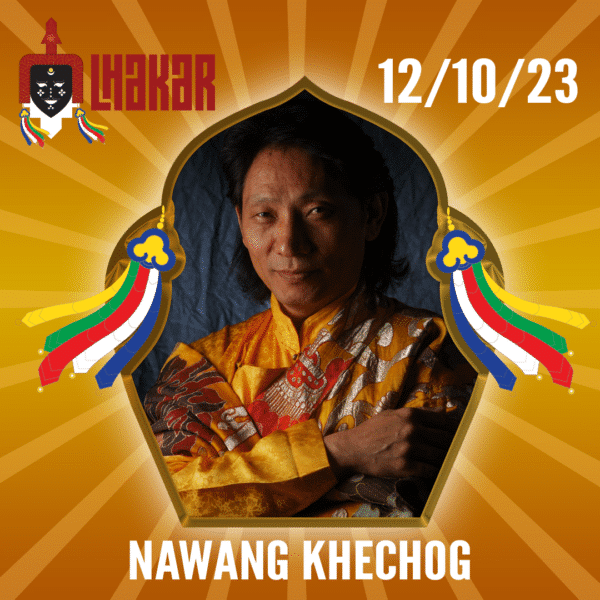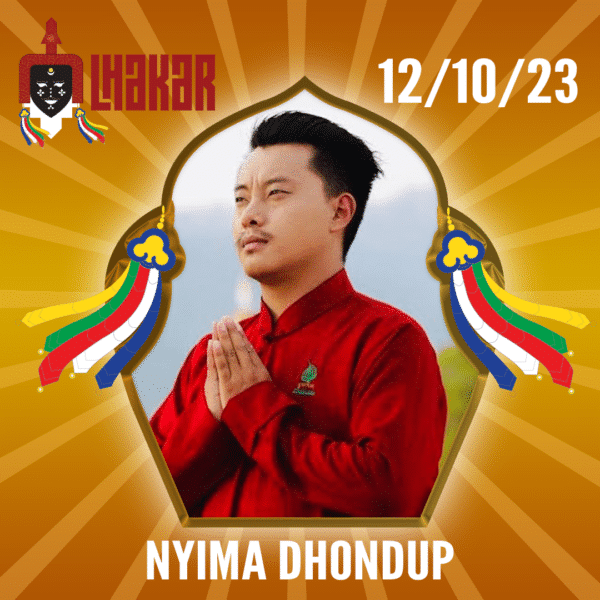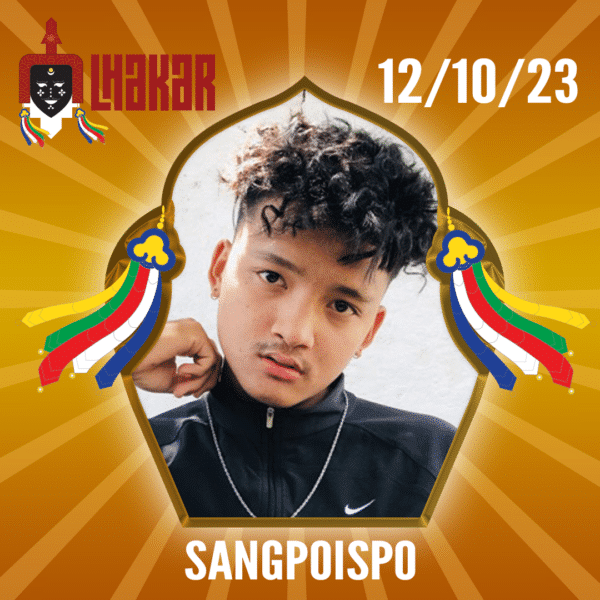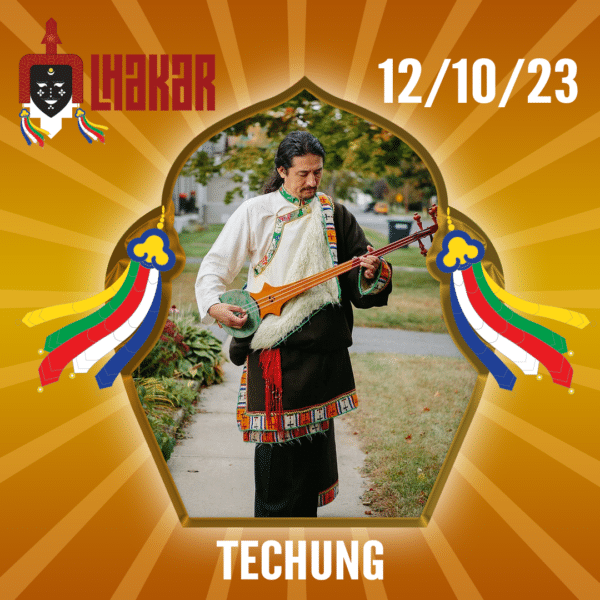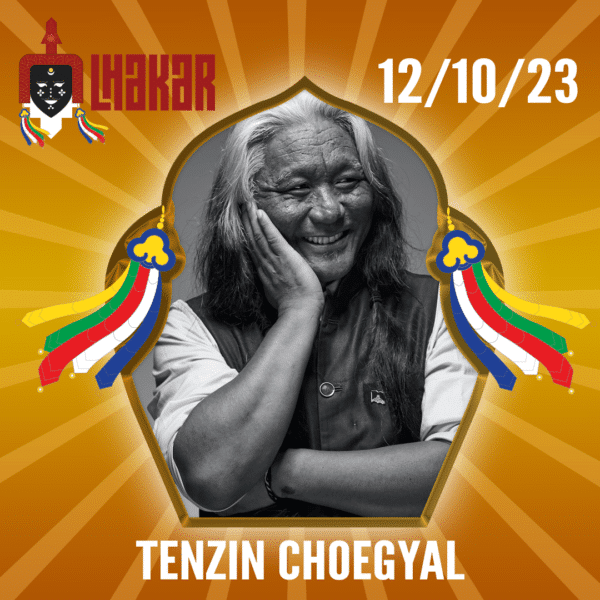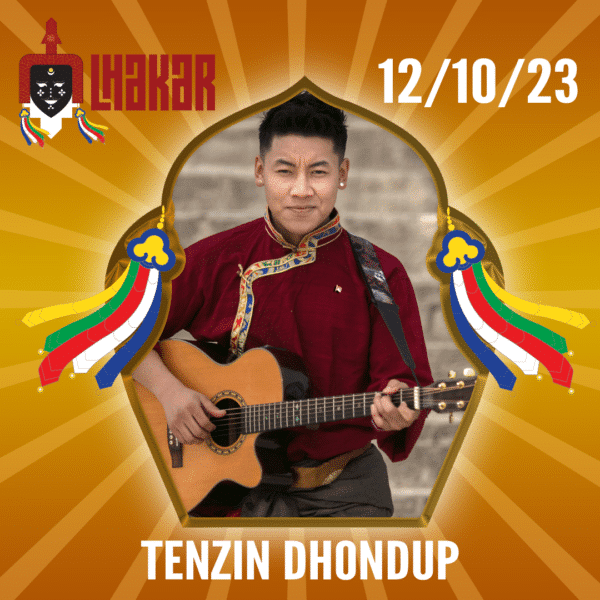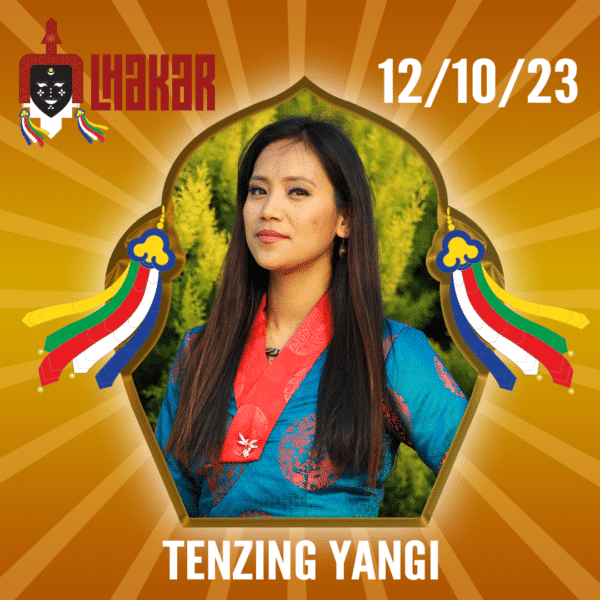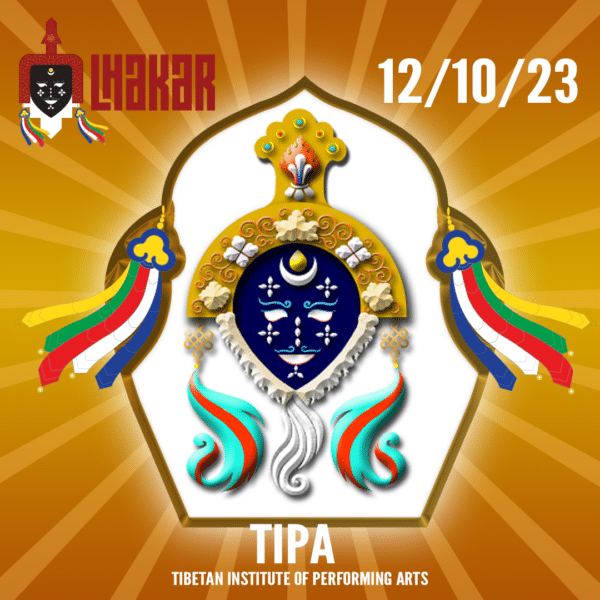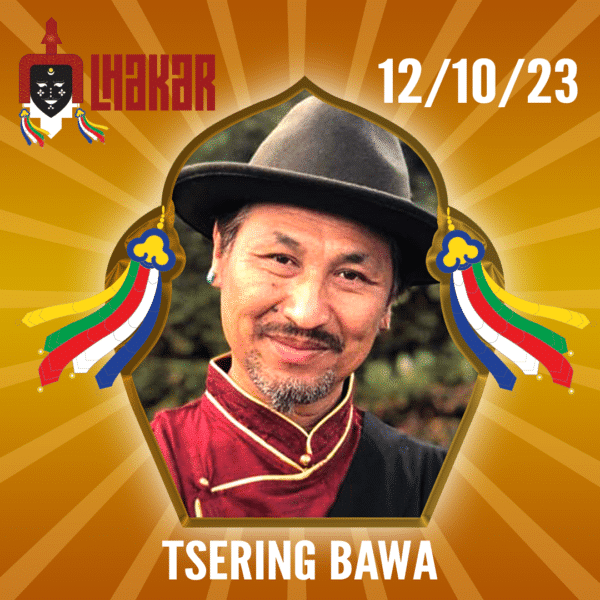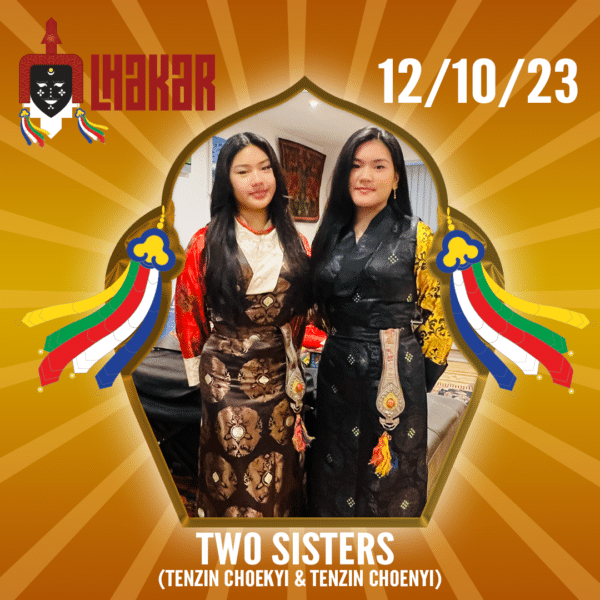We deeply appreciate any and all donations and are fully tax-deductible. All proceeds will be shared with participating artists and a portion allocated to assisting with the costs of the festival.

about lhakar music festival 2023
We’re thrilled to announce our 2023 Lhakar Online Music Festival! We are grateful to all the participating artists in the Modern Sounds in Contemporary Tibetan Music on Sunday, December 10 at 7pm ET. Join us in experiencing the rich diversity of traditional and contemporary music featuring exclusively Tibetan artists! The 2023 Music Festival begins on December 10, a day celebrated world-wide commemorating the day His Holiness the Dalai Lama received the Nobel Peace Prize.
Tibet House US was founded at the request of His Holiness the Dalai Lama, who at the inauguration in 1987 stated his wish for a long-term cultural institution to ensure the survival of Tibetan civilization and culture, whatever the political destiny of the six million people of Tibet itself.


